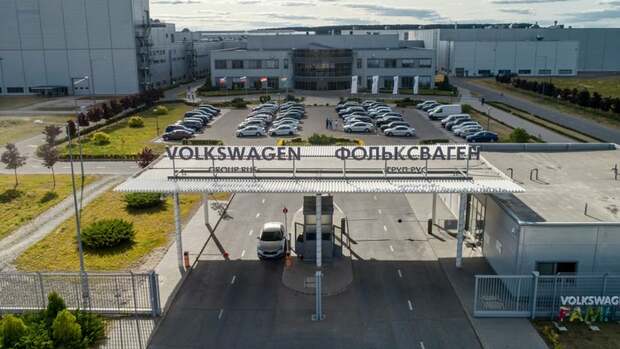Dusseldorf Volkswagen is selling its Kaluga plant to the Russian car dealership group Avilon. This is reported by several Russian media and refers, among other things, to a statement by Trade and Industry Minister Denis Manturov.
Manturov told the Tass news agency on Tuesday that the crucial session of the government commission had taken place. “Accordingly, the details have been approved and the deal between Avilon and Volkswagen is nearing completion.” The next step is to look for industrial partners with whom Avilon can organize production.
Previously there had always been speculation about the sale, also with Avilon as the buyer. However, there was no official confirmation.
A source close to the matter confirmed the deal to Handelsblatt, but the final closing is still pending. Another source from the Volkswagen environment told the Handelsblatt that it was “only about the last organizational things”. The transaction is expected to be completed in the near future – either shortly before or shortly after the Group’s annual general meeting. Volkswagen has invited to the balance sheet press conference in Berlin on May 10th.
The sources did not want to give any information about the amount of the transaction. Volkswagen recently had to write off two billion euros in connection with its Russian activities. The Kaluga plant is likely to account for a large part of this.
>> Read also: 180 billion euros in five years – Volkswagen accelerates investments
Volkswagen declined to comment and referred to an earlier statement that the group was currently in the process of selling the shares in its Russian business and thus in the Kaluga plant “to a well-known Russian investor”. A spokesman in Wolfsburg said they would be informed when the deal was officially completed. Avilon did not immediately respond to a request from the Handelsblatt.
Avilon Automotive: who is the buyer of the Russian VW plant in Kaluga
Kaluga is the larger of the two Russian plants that VW operated until the outbreak of the Ukraine War. Production is currently at a standstill, the employees receive a kind of short-time work allowance. In 2022, VW sold just under 42,000 cars and 1,500 commercial vehicles in Russia, around 80 percent less than in the previous year.
More than 4,000 people were employed in Kaluga until the outbreak of war, and the maximum production capacity was more than 200,000 cars a year. The group has already sold the smaller factory in Nizhny Novgorod on the Volga to its local joint venture partner.
Avilon is a classic car dealership and buys and sells new and used cars for the Russian market with a repair service. The Moscow company operated one of the first Ford dealerships in the Russian capital. Today, around 40 brand logos are emblazoned on the group’s website, including those of many western car manufacturers who have withdrawn from the Russian market since the beginning of the war.
The Russian company also advertises many Western car brands on its website.
In connection with the Avilon deal, Russian media reports repeatedly mention the production of Chinese cars in Kaluga. The Russian tabloid Moskovskij Komsomolets said that the Chinese automaker Chery could become a possible production partner of Avilon at the Kaluga plant.
In January alone, 17,000 out of 45,000 new cars registered in Russia came from China, which corresponds to a market share of over a third. Brands like Chery, Geely and Great Wall Motors have thus filled the gap left by Western carmakers in Russia.
VW employees in Kaluga: severance clause agreed with unions
The future of the employees should be in the interest of the local government in Kaluga. The website “Autonews.ru” reports on severance payments that VW is said to have made with its Russian collective bargaining partners in a supplementary agreement on Wednesday.
>> Read also: These seven electric cars from China are challenging the market
Accordingly, an employee who is made redundant for operational reasons and has worked for VW for more than five years will receive eight monthly salaries as financial compensation. With five to ten years of experience, the severance payment entitlement increases to nine salaries, from ten years up to ten salaries. The whole thing applies for one year from the transfer of the assets to the new owner.
VW declined to comment on the deal. However, the group circles said that the numbers sounded plausible. Presumably, however, the vast majority of employees would simply continue to be employed under the new owner.
The deal with Avilon had been prepared for some time, internally those involved had expected the negotiations to be concluded successfully much earlier. However, there were always adversities that endangered the sale. In mid-March, for example, a court in Nizhny Novgorod froze all of the Volkswagen Group’s assets in Russia. The Russian carmaker Gaz had sued after the Dax group had ended the cooperation in August and demanded damages in the equivalent of around 170 million euros.
Gaz’s claim failed, as the court decided a few weeks later. However, by then the sale of the Kaluga plant had been put on hold.
More: Nine out of ten German companies are still active in Russia
